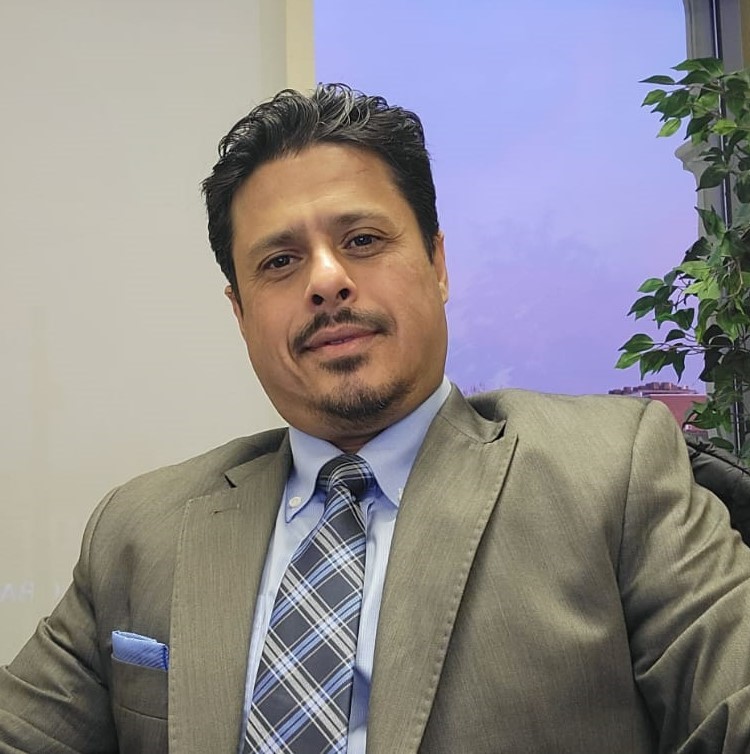Scope of Research
The Oral Microbiome Research Laboratory explores the role of the oral microbiome and its interaction with the host in health and disease. These efforts help to improve understanding of the etiology and pathogenesis of diseases—including dental caries, periodontitis, oral candidiasis and oral cancer—and to aid researchers in the development of strategies for treatment and prevention. Research efforts at the lab include
- using nucleic acid sequencing of clinical samples to decipher changes in the composition and function of the oral microbiome.
- understanding fungal pathogenesis to develop novel treatment strategies for oropharyngeal candidiasis (OPC), which is an oral disease caused by Candida albicans in individuals with various immunodeficiencies, including AIDS.
- developing in vitro models of the oral microbiome that replicate normobiosis and dysbiosis in high throughput format, the goal of which is to screen potential microbiome modulators such as prebiotics and probiotics.
Located on the fourth floor of the Kornberg School of Dentistry, the 725-square-foot Oral Microbiome Research Laboratory is equipped for
- cultivation, processing and storage of bacteria, fungi, biofilms, microbiomes and cell lines;
- nucleic acids and proteins extraction, quantification and fragment analysis;
- conventional and real-time polymerase chain reaction (PCR);
- library preparation for sequencing;
- chemiluminescence and fluorescence assays;
- fluorescent imaging;
- immunoblotting;
- carrying out pre- and post-processing of murine models; and
- processing human oral samples.
Recent Funding
Dr. Nezar Al-Hebshi
National Institutes of Health, National Institute of Dental and Craniofacial Research, R21
“The role of Fusobacterium nucleatum and Candida albicans interkingdom interactions in promoting OSCC”
Jan 2024 – Dec 2026
Role: Principal Investigator
Amount: $519,151
National Institutes of Health, National Institute of Dental and Craniofacial Research, R56
“The microbiome associated with oral Leukoplakia: a multi-omics mechanistic study”
Sep 2023 – Aug 2024
Role: Principal Investigator
Amount: $413,685
National Institutes of Health, National Institute of Dental and Craniofacial Research, U01
“Sequential Modeling for Prediction of Periodontal Diseases: an Intra-Collaborative Practice-based Research study (ICPRS)”
Sep 2023 – Aug 2028
Role: Co-investigator (Lead investigator of the microbiome component - Aim 2)
Amount: $3.6 million
National Institutes of Health, National Institute of Cancer, R01
“Folic Acid Supplementation and Colitis-associated Colon Carcinogenesis”
July 2022 – June 2027
Role: Subaward PI
Amount: $191,293 (Subaward)
Previous funding: $456,810 (NIH NIDCR R21, Co-Investigator); $342,790 (NIH NIDCR R03, PI); $371,858 (NIH NIDCR R03, PI); $200,000: (PDH, PI).
DR. SUMANT PURI
National Institutes of Health, National Institute of Dental and Craniofacial Research, R01
“Role of Environmental Iron in Candida albicans Cell Wall Remodeling and its Effect on Host-pathogen Interaction During Oropharyngeal Candidiasis”
July 2021 - June 2026
Role: PI Sumant Puri
Amount: $1,882,190
Office of the Vice President for Research 2020 Bridge Research Program
“Effect of Iron on Fungal Pathogenesis”
July 2020 - Aug 2020
Role: PI Sumant Puri
Amount: $18,000
News
Drug-resistant infections: If you can’t beat ’em, starve ’em, scientists find
University at Buffalo News Center
May 2019
Selected Publications
Dr. Nezar Al-Hebshi
Molli VLP, Kissa J, Baraniya D, Gharibi A, Chen T, Al-Hebshi NN*, Albandar JM. Bacteriome analysis of Aggregatibacter actinomycetemcomitans-JP2 genotype-associated Grade C periodontitis in Moroccan adolescents. Front Oral Health. 2023 1288499.
Jain V, Baraniya D, Elhadedy DE, Chen T, Slifker MJ, Alakwaa F, Cai KQ, Chitrala KN, Fundakowski C, Al-hebshi NN*. Integrative metatranscriptomic analysis reveals disease-specific microbiome-host interactions in oral squamous cell carcinoma. Cancer Research Communications, 2023 CRC-22-0349.
Baraniya D, Do T, Chen T, Albandar JM, Chialastri SM, Devine DA, Marsh PD, Al-Hebshi NN*. Optimization of conditions for in vitro modeling of subgingival normobiosis and dysbiosis. Front Microbiol. 2022;13:1031029.
Baraniya D, Chitrala KN, Al-Hebshi NN*. Global transcriptional response of oral squamous cell carcinoma cell lines to health-associated oral bacteria - an in vitro study. J Oral Microbiol 2022 May 16;14(1):2073866
Chen T, Marsh PD, Al-Hebshi NN*. SMDI: An Index for Measuring Subgingival Microbial Dysbiosis. J Dent Res 2021 Aug 25;220345211035775.
Baraniya D, Jain V, Tam V, Vanderveer L, Puri S, Yang J, AL-hebshi NN*. Screening of health-associated oral bacteria for anticancer properties in vitro. Front Cell Infect Microbiol. 2020; 10:575656.
Baraniya D, Chen T, Nahar A, Alakwaa F, Hill J, Tellez M, Ismail A, Puri S, Al-hebshi NN*. Supragingival mycobiome and inter-kingdom interactions in dental caries. Journal of Oral Microbiology 2020, 12(1): 1729305.
Baraniya D, Naginyte M, Chen, Albandar JM, Chialastri SM, Devine DA, Marsh PD, Al-hebshi NN*. Modeling Normal and Dysbiotic Subgingival Microbiomes: Effect of Nutrients. Journal of Dental Research 2020. https://doi.org/10.1177/0022034520902452
Al-hebshi NN*, Baraniya D, Chen T, Hill J, Puri S, TellezM, Hasan NA, Colwell RR, Ismail A. Metagenome sequencing-based strain-level and functional characterization of supragingival microbiome associated with dental caries in children. Journal of Oral Microbiology. 2019;11:1557986.
DR. SUMANT PURI
Sharma R, Gibb AA, Barnts K, Elrod JW, Puri S. Alternative oxidase promotes high iron tolerance in Candida albicans. Microbiol Spectr. 2023; 11(6):e0215723.
Blass B*, Puri S*, Sharma R, Day B. Antifungal properties of (2S, 4R)-Ketoconazole sulfonamide analogs. Front. Drug Discov. 2022; 2. * Co-corresponding authors
Tripathi A, Nahar A, Sharma R, Kanaskie T, Al-Hebshi NN, Puri S. High Iron-mediated Increased Oral Fungal Burden, Oral-to-gut transmission, and Changes to Pathogenicity of Candida albicans in Oropharyngeal Candidiasis. J Oral Microbiol. 2022; 14(1):2044110.
Montoya C, Kurylec J, Baraniya D, Tripathi A, Puri S*, Orrego S*. Antifungal Effect of Piezoelectric Charges on PMMA Dentures. ACS Biomater Sci Eng. 2021 Oct11;7(10):4838-4846. * Co-corresponding authors
Tripathi A, Liverani E, Tsygankov AY, Puri S. Iron Alters the Cell Wall Composition and Intracellular Lactate to Affect Candida albicans Susceptibility to Antifungals and Host Immune Response. J Biol Chem. 2020;295(29):10032-10044.
Baraniya D, Chen T, Nahar A, Alakwaa F, Hill J, Tellez M, Ismail A, Puri S*, Al-Hebshi NN*. Supragingival Mycobiome and Inter-kingdom Interactions in Dental Caries. J Oral Microbiol. 2020 Feb 19;12(1):1729305.



